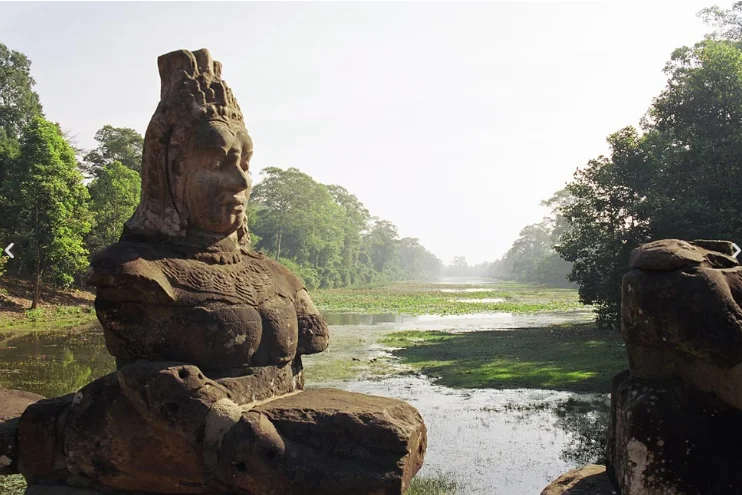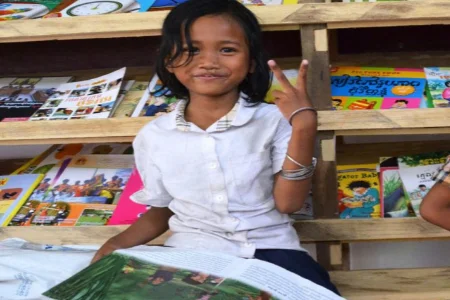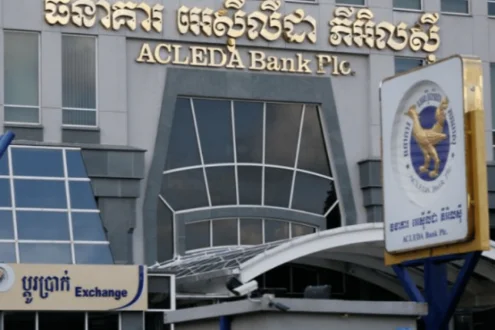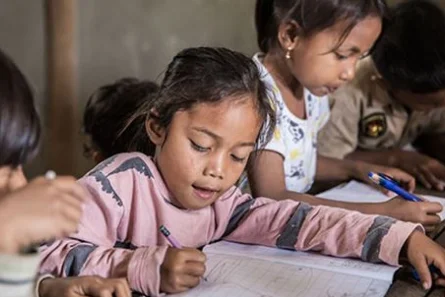Sustainable Living in Cambodia: Buddhist Monks Farm Organic Produce
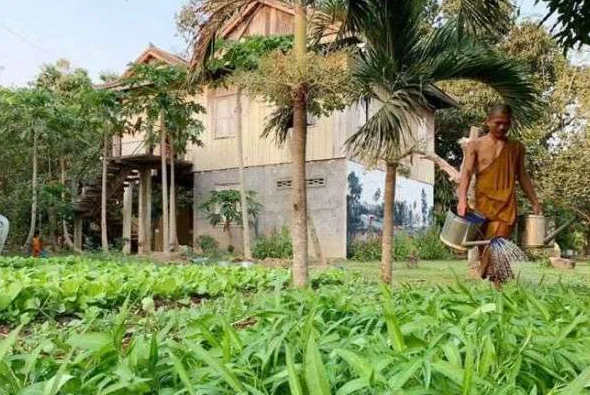
As the need for more sustainable lifestyles grows increasing apparent, many Buddhist monks in Cambodia have redesigned their temples with garden spaces to enable the resident monastics to grow their own food.
Serei Sakor Daun Sdoeung Pagoda, located in Senareach Udom commune’s Snay Proem Village in Preah Sdach District, has designated a green space in which the resident monks grow a variety of rice, fruits, and vegetables, including lettuce, morning glory, spinach, Chinese kale, eggplants, tomatoes, corn, lemongrass, pumpkins, fragrant coconuts, water lilies, bananas, jackfruit, mangos, rose-apples, and papayas.
Initiated by the pagoda’s chief monk, Ven. Im Teang, some 10 years ago, the monks have since planted more than 3,000 trees on the surrounding land, as well as following other eco-friendly routines, such as strictly avoiding using plastic bags.
“I value spiritual and physical well-being and I believe that growing fruits and vegetables can contribute to both aspects of life. Growing organic vegetables helps monks and nearby villagers to be active through physical exercise as they sweat while working the land,” said Ven. Teang. “The pagoda doesn’t have to spend money to buy vegetable and risk consuming unhealthy foods.” (The Phnom Penh Post)
“We value our [own] life and we should not hurt others. Even trees are living things and we should not harm trees or nature because they’re living things just like us. I love trees and plants,” Ven. Teang explained. “If we have to fell one tree, we should replant two. Trees provide a green canopy to the Earth and other living things. They protect the Earth from global warming.”
Concerned about sustainability for health, the economy, and the environment, the monks use only natural fertilizers in their agriculture.
“I think that growing organic vegetables is not difficult. The technique goes back to the early days of our ancestors,” said Ven. Teang. “Growing and eating what you plant is good for [one’s] health. When you’re healthy, you can study and work effectively. It is not for no reason that people say ‘you are what you eat.’” (The Phnom Penh Post)
Serei Sakor Daun Sdoeung Pagoda helps the local villagers to grow organic food, sharing rice seedlings with them when the rainy season starts. It also offers its stocks of rice and vegetables to needy people.
“We have more vegetables and fruits than we need for our daily consumption. Our priority is to reserve them for nearby villagers. People who come from far away can also get food from the pagoda if we still have it in stock,” said Ven. Teang. (The Phnom Penh Post)
Serei Sakor Daun Sdoeung Pagoda was almost destroyed during the Khmer Rouge period . After the fall of the brutal regime, the monks and villagers began working together to rebuild the site. Now the pagoda is one of the most esteemed Buddhist centers out of 500 pagodas in Prey Veng Province, and is renowned as the greenest Buddhist temple in Cambodia.
 Albania
Albania Algeria
Algeria Andorra
Andorra Argentina
Argentina Armenia
Armenia Australia
Australia Austria
Austria Azerbaijan
Azerbaijan Bahrain
Bahrain Belgium
Belgium Bolivia
Bolivia Brazil
Brazil Bulgaria
Bulgaria Cambodia
Cambodia Cameroon
Cameroon Canada
Canada Chad
Chad Chile
Chile China
China Colombia
Colombia Costa Rica
Costa Rica Croatia
Croatia Cyprus
Cyprus Czechia
Czechia Denmark
Denmark Ecuador
Ecuador Egypt
Egypt Finland
Finland France
France Georgia
Georgia Germany
Germany Ghana
Ghana Greece
Greece Hungary
Hungary Iceland
Iceland India
India Indonesia
Indonesia Ireland
Ireland Italy
Italy Jamaica
Jamaica Japan
Japan Jordan
Jordan Kazakhstan
Kazakhstan Kenya
Kenya Kuwait
Kuwait Latvia
Latvia Lebanon
Lebanon Libya
Libya Lithuania
Lithuania Luxembourg
Luxembourg Malaysia
Malaysia Maldives
Maldives Mali
Mali Malta
Malta Mexico
Mexico Moldova
Moldova Monaco
Monaco Morocco
Morocco Netherlands
Netherlands New Zealand
New Zealand Nigeria
Nigeria North Macedonia
North Macedonia Norway
Norway Oman
Oman